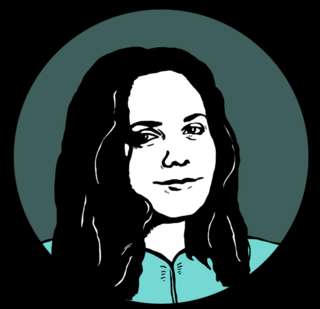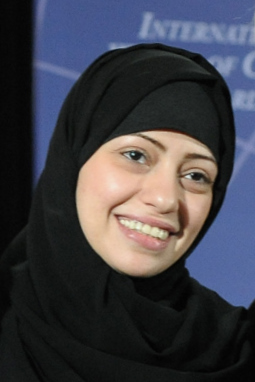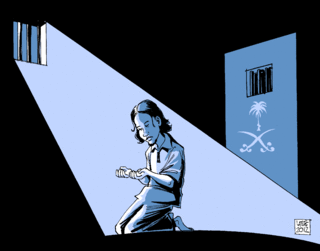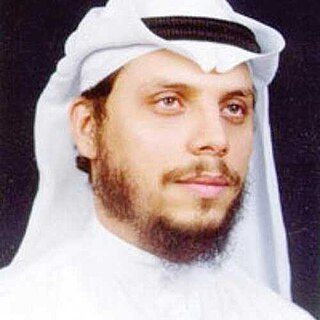
Jeddah, alternatively transliterated as Jedda, Jiddah or Jidda, is a port city in Makkah Province, Saudi Arabia, located along the Red Sea coast in the Hejaz region. Jeddah is the commercial center of the country. It is not known when Jeddah was founded, but Jeddah's prominence grew in 647 when the Caliph Uthman made it a travel hub serving Muslim travelers going to the holy city of Mecca for Islamic pilgrimage. Since those times, Jeddah has served as the gateway for millions of pilgrims who have arrived in Saudi Arabia, traditionally by sea and recently by air.

The Kingdom of Saudi Arabia is an Islamic absolute monarchy in which Sunni Islam is the official state religion based on firm Sharia law. Non-Muslims must practice their religion in private and are vulnerable to discrimination and arrest. While no law requires all citizens to be Muslim, non-Muslim foreigners attempting to acquire Saudi Arabian nationality must convert to Islam. Children born to Muslim fathers are by law deemed Muslim, and conversion from Islam to another religion is considered apostasy and punishable by death. Blasphemy against Sunni Islam is also punishable by death, but the more common penalty is a long prison sentence; there have been 'no confirmed reports of executions for either apostasy or blasphemy' in the 21st century.

Human rights in Saudi Arabia are a topic of concern and controversy. The Saudi government, which mandates both Muslim and non-Muslim observance of Islamic law under the absolute rule of the House of Saud, has been accused of and denounced by various international organizations and governments for violating human rights within the country. The authoritarian regime ruling the Kingdom of Saudi Arabia is consistently ranked among the "worst of the worst" in Freedom House's annual survey of political and civil rights.
Following a crackdown on Iranian media beginning in 2000, many Iranians turned to weblogging to provide and find political news. The first Persian language blog is thought to have been created by Hossein Derakhshan,, in 2001. Derakhshan also provided readers with a simple instruction manual in Persian on how to start a blog. In 2004, a census of blogs around the world by the NITLE found 64,000 Persian language blogs. In that year the Islamic government also began to arrest and charge bloggers as political dissidents and by 2005 dozens of bloggers had been arrested.

Saad El-Din Rafik Al-Hariri is a Lebanese-Saudi politician who served as the prime minister of Lebanon from 2009 to 2011 and 2016 to 2020. The son of Rafic Hariri, he founded and has been leading the Future Movement party since 2007. He is seen as "the strongest figurehead" of the March 14 Alliance.

Mojtaba (Madyar) Saminejad is an Iranian blogger and writer. He studied journalism at the Central Tehran Branch of Islamic Azad University.
In Myanmar (Burma), some blogs started in 2005. The earlier blogs were written in English, as there was no unicode font at that time, so they could not post in their mother language.

Islam is the state religion of Saudi Arabia.

Arab News is an English-language daily newspaper published in Saudi Arabia. It is published from Riyadh. The target audiences of the paper, which is published in broadsheet format, are businessmen, executives and diplomats.

Eman al-Nafjan is a Saudi Arabian blogger and women's rights activist. She was detained by Saudi authorities in May 2018 along with Loujain al-Hathloul and five other women's rights activists in what Human Rights Watch interpreted as an attempt to frighten her and the other activists, during the 2018–2019 Saudi crackdown on feminists.
Hatoon Ajwad al-Fassi is a Saudi Arabian historian, author and women's rights activist. She is an associate professor of women's history at King Saud University in Saudi Arabia, where she has been employed since 1989 and at the International Affairs Department at Qatar University. At the university, al-Fassi carries out historical research. Al-Fassi claims from her research into the pre-Islamic Arabian kingdom of Nabataea that women in the kingdom had more independence than women in modern Saudi Arabia. Al-Fassi was active in women's right to vote campaigns for the 2005 and 2011 municipal elections and was active in a similar campaign for the 2015 municipal elections. She was arrested in late June 2018 as part of a crackdown on women's activists and was released in early May 2019.
Khaled al-Johani is a teacher of religious instruction in Riyadh, Saudi Arabia. He was imprisoned, without charges or trial for nearly one year, at ʽUlaysha Prison for having publicly asked for freedoms and democracy in Saudi Arabia – an absolute monarchy – during the 2011–2012 Saudi Arabian protests. His public statement was made to a BBC Arabic Television team on a street in Riyadh in the presence of security forces. On 22 February 2012 he was charged in a court for al-Qaeda suspects and a trial date set for April 2012. Al-Johani is an Amnesty International prisoner of conscience as of February 2012.

Samar bint Muhammad Badawi is a Saudi Arabian human rights activist. She and her father filed court cases against each other. Badawi's father accused her of disobedience under the Saudi Arabian male guardianship system and she charged her father with adhl—"making it hard or impossible for a person, especially a woman, to have what she wants, or what's rightfully hers; e.g, her right to marry" according to Islamic jurisprudence—for refusing to allow her to marry. After Badawi missed several trial dates relating to the charge, an arrest warrant was issued for her, and Badawi was imprisoned on 4 April 2010. In July 2010, Jeddah General Court ruled in Samar Badawi's favor, and she was released on 25 October 2010, and her guardianship was transferred to an uncle. There had been a local and international support campaign for her release. The Saudi NGO Human Rights First Society described Badawi's imprisonment as "outrageous illegal detention".

Hamza Kashgari Mohamad Najeeb is a Saudi poet and a former columnist for the Saudi daily newspaper Al-Bilad. In 2011, he was on a Mabahith watchlist of pro-democracy activists.
The national federation was created in 1956 and became a FIFA affiliate in 1956. However women's football is not included in the country's FIFA coordinated Goals! project. By 2011, inside the Saudi Arabia Football Federation, there has been an effort to create women's football programs at universities. Input had been sought on how to do this from other national federations including ones from the United States, Germany, Brazil and the United Kingdom.

Saud Mukhtar al-Hashimi is a Saudi Arabian doctor.

Raif bin Muhammad Badawi is a Saudi writer, dissident and activist, as well as the creator of the website Free Saudi Liberals.

Waleed Sami Abulkhair is a Saudi Arabian lawyer and human rights activist, and the head of the Monitor of Human Rights in Saudi Arabia (MHRSA) organization. He is the first activist to be prosecuted by the Terrorism Law. He was arrested on 15 April 2014, and was sent to al-Ha'ir Prison while awaiting prosecution. On 6 July 2014, Abulkhair was sentenced to 15 years in prison by the Specialized Criminal Court, and a travel ban for another 15 years, in addition to a fine of 200,000 riyals (US$53,333). On 12 January 2015, the case returned to the Court of Appeals, after which the judge requested increasing the previous sentence, because Abulkhair refused to apologize. Thus, the judgment was tightened to 15-year executed. In response, Abulkhair prayed for God's victory and refused to recognize the legitimacy of the Specialized Criminal Court. Abulkhair is incarcerated in the Dhahban Central Prison in Jeddah, Saudi Arabia, a facility used to hold high-profile political prisoners, as well as members of Al Qaeda and the Islamic State.
Iman al-Qahtani ايمان القحطاني is a Saudi journalist and activist.
Walid Fitaihi is a Saudi-American physician and also a motivational speaker on Saudi television. In November 2017, a decade after returning from study and work in the United States, Fitaihi was arrested by Saudi authorities and taken to the Ritz Carlton hotel as part of the 2017–19 Saudi Arabian purge, together with many prominent prisoners. He was later moved to al-Hair prison, south of the capital, but then released in August 2019.












